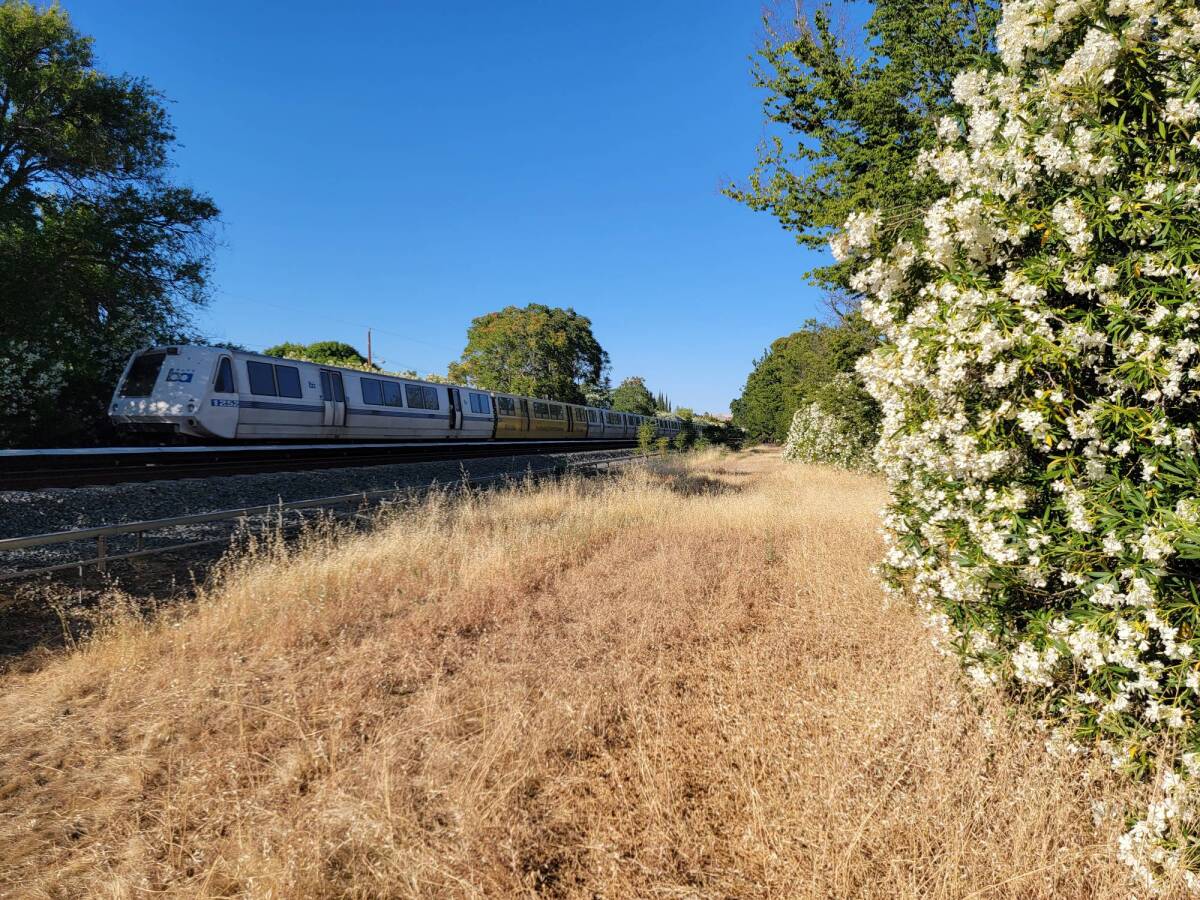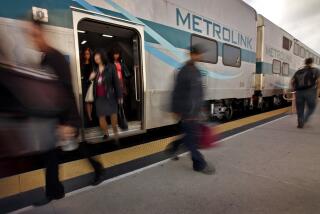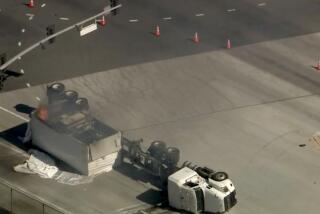Track temperatures of 140 degrees led to Bay Area train derailment, officials say

Excessive heat on the train tracks caused a BART train to derail near Concord earlier this week, officials said.
About 50 passengers had to be evacuated around 5:30 p.m. Tuesday after a Bay Area Rapid Transit train derailed near Hastings Drive and David Avenue.
Firefighters said several people reported minor injures. One person who complained of back pain was taken to a hospital, BART officials said.
The train derailed amid a heat wave in the Bay Area that sent temperatures soaring into the triple digits.
“Our initial assessment is that heat played the main role in the partial derailment by causing a curve in the rail,” BART said in a statement.
BART officials said staff were investigating what caused the incident. About 50 passengers were evacuated.
Temperatures on the track exceeded 140 degrees — about 35 degrees above the rail’s ordinary operating temperature — BART spokesman Chris Filippi told the San Francisco Chronicle. Tracks can become misaligned when rail temperatures reach or exceed 20 degrees above neutral operating temperatures, Filippi said.
Derailments caused by excessive heat are rare but not unheard of. A 19-car cargo train derailed in Tulare County after extreme heat led to buckling on the track in 2017. Officials pointed to similar causes when a cargo train derailed in Big River near the California-Arizona border in 2020.
The transit system could not confirm whether this was the first heat-related derailment, the Chronicle reported. There is no mention of heat contributing to any derailments on BART tracks, according to the agency’s news archives, which date to 2005.
Railways across the country could become more vulnerable with the increasing frequency and intensity of heat events, according to a 2019 study in Transport Policy. The study found that by 2100, train tracks across the nation could incur $25 billion to $60 billion in damage because of heat and climate change.
After the BART train derailed, transit officials began running trains on a single track between Pleasant Hill and Concord. The scene was cleared by Wednesday morning after about 70 BART employees worked through the night to get the track ready for morning commuters, the transit system said in a statement.
More to Read
Sign up for Essential California
The most important California stories and recommendations in your inbox every morning.
You may occasionally receive promotional content from the Los Angeles Times.











